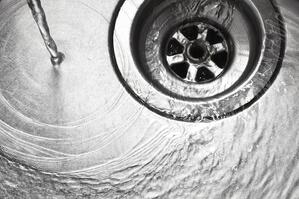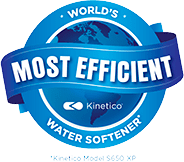Depending on where you live and the source of your household water, you may notice that your water has a specific “flavor.” For many people, though, the water that comes from their tap tastes metallic. It might be subtle, or it might be very noticeable. But, why do you have metallic tasting water? And, is there anything you can do about it?
Some minerals and other chemicals found in water have a naturally strong odor or taste. But, just because your water tastes “off” does not necessarily mean it is unsafe. Still, you want the best for your family, and that includes water that is not only safe but refreshingly delicious.
What does metal taste like, anyway?
Tap water can taste like a lot of different things depending on what contaminants are found in it.
Chlorine and sulfate can give your water a salty taste, but iron, copper, manganese, and zinc typically cause your water to taste metallic. After all, they are metals. However, there are actually more than 300 different detectable contaminants in water supplies around the country.
What causes metallic tasting water?
There are a couple of reasons your water may taste metallic:
1. Traces of metal
Your water may have traces of metal that can come from old, rusting pipes that slough off iron particles. Older homes and municipal water systems commonly used iron pipes. If you have a well, corrosion and resulting seepage can increase iron in your water. Pipes made of galvanized steel, copper, or brass can also start to corrode after 80 to 100 years.
If your home dates back to the early 1900s or earlier, the greater concern is the possible presence of lead. We know now that lead is highly toxic, but it was used many years ago to solder pipe connections. (It has been illegal to use lead in plumbing since 1986.) Unless you are certain your home’s plumbing has been upgraded, it is imperative to test your water for lead and to get your pipes checked out.
2. Low pH
A low pH level in your water can also make it taste metallic or otherwise off. Measuring potential hydrogen (pH) tells you how acidic or alkaline your water is. A normal range is 6.5 to 8.5. If your water’s pH is on the low side, it may taste somewhat “acidic” or sour.
Finding and fixing the problem
You can take steps to improve the taste of your water. And you certainly want to be sure it doesn’t contain any potentially harmful elements. Testing your water will tell you what’s in it. You can get a relatively simple test kit at the store, order a sampling kit from a certified water testing laboratory — which you’ll send back for analysis, or have your water professionally tested.
Not only is your goal to identify what the problem is, but also to find the source of your problem. Does the water taste metallic everywhere in your house, or just from a particular tap? This can help you pinpoint the location of rusting pipes, for example.
Testing can help you track down the problem and give you peace of mind. If there’s a dangerous problem such as the presence of lead, you can take corrective action. And if your water is safe but simply unpleasant tasting, you can correct that by using a water filtration system for drinking and cooking water.










